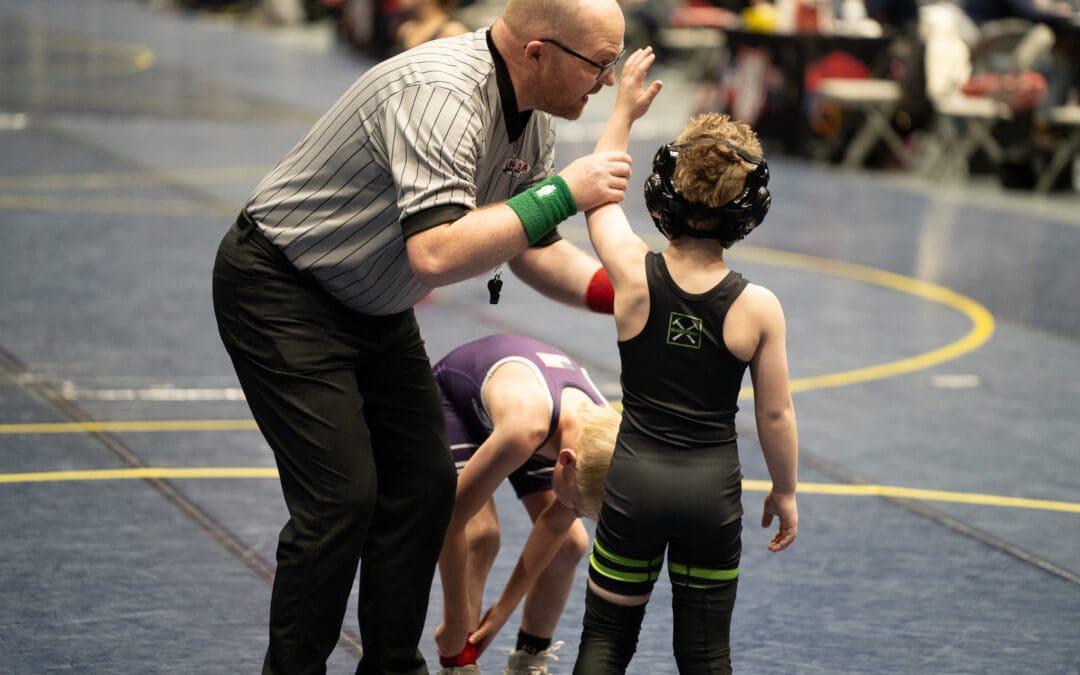In the realm of youth sports, especially wrestling, there’s a narrative that’s become all too common at tournaments: “It’s not about winning; it’s about learning.” While fostering a positive mindset and emphasizing the value of learning is crucial, it’s equally important to acknowledge the undeniable truth—the essence of competition is, indeed, to win. This perspective isn’t about diminishing the importance of personal growth but about recognizing the real reward for hard work and preparation: victory.
The Role of Practice: The Learning Ground
Practice sessions are the backbone of any wrestler’s journey. It’s within the confines of the training room, under the watchful eye of a coach, where learning truly happens. Techniques are honed, strategies are devised, and stamina is built. Practice is where mistakes are made and corrected, where personal limits are pushed, and where true learning occurs. The mat is a classroom, and each session is a lesson in improvement, resilience, and preparation for the ultimate test—the tournament.
Tournaments: The Arena of Application
When it comes to tournaments, the objective is clear: to win. This is the stage where the effectiveness of practice is tested, where the fruits of relentless training, discipline, and dedication are harvested. Winning at a tournament is a tangible measure of progress, a validation of the hard work put in during countless hours of practice. It’s a moment of triumph that goes beyond the medal or the accolade; it’s a testament to the wrestler’s commitment, skill, and spirit.
Understanding Failure: Beyond Learning
Labeling every tournament loss as a “learning experience” can, paradoxically, obscure the lessons that need to be learned. It’s a comforting narrative, but one that risks complacency and a lack of critical reflection. Failure in competition should prompt a rigorous evaluation of what went wrong and why. It’s a call to action, a signal that something in the preparation—be it technique, strategy, or mental fortitude—needs to be revisited and refined.
The Cycle of Improvement: Practice, Compete, Evaluate
The journey of a wrestler is a cycle of preparation, application, and evaluation. Practice is for learning; tournaments are for winning, and the aftermath of each competition, regardless of the outcome, is for honest, constructive evaluation. If a loss occurs, it’s not enough to blanket it as a learning experience. It must be dissected, understood, and addressed back in the training room, where the cycle of improvement continues.
The Significance of Winning
To strive for victory is to honor the essence of competition. It’s a recognition that while not every battle will be won, the goal of competing is, unequivocally, to emerge victorious. This mindset doesn’t negate the value of learning or personal growth; rather, it places them within the context of their true purpose—to win.
Winning matters because it’s the clearest indicator of growth, the most honest feedback on a wrestler’s development, and the most direct path to achieving greatness in the sport. It’s the culmination of practice, the application of learning, and the ultimate test of a wrestler’s ability.
Conclusion
As we navigate the complex, challenging, and rewarding world of youth wrestling, let’s embrace the full spectrum of what it means to compete. Let’s honor the hard work, the dedication, and the spirit of our young athletes by recognizing the importance of winning—not as the only measure of success but as a vital, invaluable part of the journey. In doing so, we prepare them not just for the next match, but for life, teaching them the value of setting goals, working hard, and striving always to be their best.

